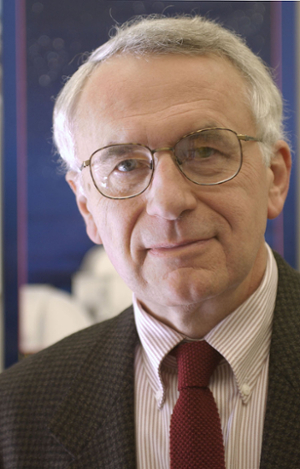
John H. Thomas
Professor of Mechanical and Aerospace Sciences, and Astronomy, Emeritus
PhD in Engineering Sciences, Purdue University, 1966
- Office Location
- 223 Hopeman
- Telephone
- (585) 275-4083
- Fax
- (585) 256-2509
- Web Address
- Website
Biography
Professor Thomas received his PhD in engineering sciences (1966) from Purdue University. After a year as a NATO Postdoctoral Fellow at the University of Cambridge, England, he joined the Department of Mechanical and Aerospace Sciences (now Mechanical Engineering) at the University as an Assistant Professor in 1967. He was promoted to Associate Professor in 1973 and to Professor in 1981. Since 1986 he has held a joint appointment as Professor of Astronomy. Professor Thomas served as Associate Dean for Graduate studies in the College of Engineering and Applied Science (1981-1983) and then as University Dean of Graduate Studies (1983-1991). He has held visiting appointments at the Max Planck Institute for Astrophysics, the Department of Theoretical Physics at the University of Oxford, the National Solar Observatory, the High Altitude Observatory, the University of Sydney, LAEFF in Madrid, and the Department of Applied Mathematics and Theoretical Physics and Isaac Newton Institute at the University of Cambridge. Professor Thomas was a Guggenheim Fellow (1993-94) and is a past Chair of the Solar Physics Division of the American Astronomical Society. From 1993 through 2002, he was a Scientific Editor of The Astrophysical Journal. He is an elected Fellow of the American Physical Society, the American Association for the Advancement of Science, the American Astronomical Society, and the Royal Astronomical Society (UK).
Research Overview
Professor Thomas's general area of long-term interest is theoretical astrophysics, especially astrophysical fluid dynamics and magnetohydrodynamics. He has worked extensively in solar astrophysics, on such topics as the physics of sunspots and magnetic flux tubes, solar activity and the solar cycle, solar and stellar dynamo theory, helioseismology, and MHD waves in the solar atmosphere. Although primarily a theoretician, He has also carried out numerous solar observations at the National Solar Observatory/Sacramento Peak and used data from various solar space missions. With colleagues in Physics & Astronomy, he has done research on white dwarf stars, stellar dynamos, and planetary nebulae. He has also worked in several areas of geophysical fluid dynamics. Professor Thomas retired in 2014, and since 2017 he has been active in research on the fluid dynamics of cerebrospinal fluid flow in the brain and the brain’s glymphatic system for clearance of metabolic waste products.
Research Interests
- theoretical astrophysics
